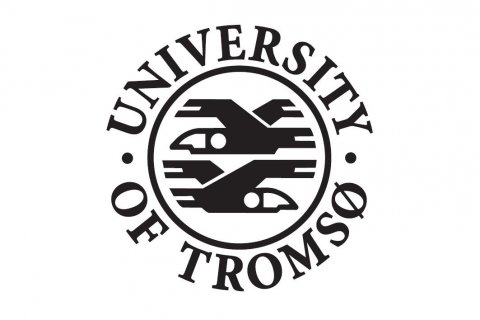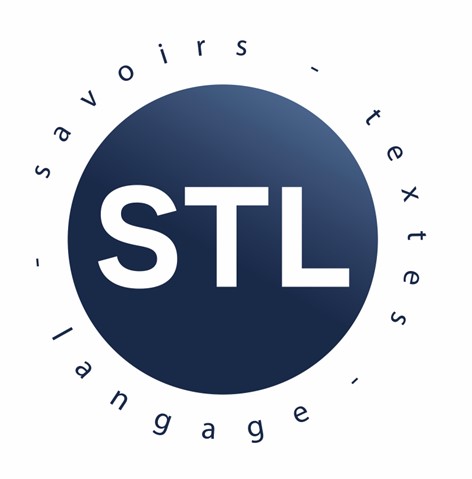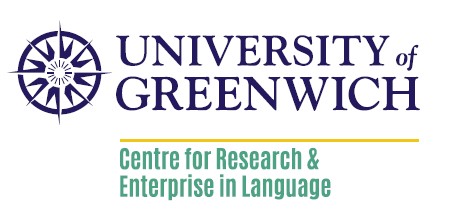Workshop on Aspect and Argument Structure of Adjectives/Adverbs and Participles/Prepositions
WAASAP 10th Anniversary Conference, hosted by the Centre for Research in Language and Heritage



Venue: University of Greenwich, King William Building, London, UK
Dates: 16 & 17 June 2022
WAASAP is an international Workshop series celebrated biannually that focuses on the aspect and argument structure of adjectives, adverbs, participles and prepositions. In the time of its existence, it has developed into a referential forum of discussion of the theory of predicative non-verbal categories. Past editions have taken place at the University of Greenwich (2012), The Artic University of Norway at Tromsoe (2014), The University of Lille 3 (2016), and the University Pompeu Fabra (2018). This year’s edition is hosted by the University of Greenwich in London to celebrate how it all started.
WAASAP welcomes research on the aspectual and argument structure of nonverbal categories, with a focus on adjectives, participles, prepositions and adverbs. The topics that we are interested to include, but are not restricted to, are the following:
(i) To what extent one can find correlates between the argument and aspectual structure of verbs and those of adjectives and prepositions, for instance in what relevant senses one can differentiate between classes of adjectives according to the interpretations they impose to their subjects, how one should analyse the prepositional complements of adjectives and adverbs or whether the figure / ground structure of prepositional structures has a parallel in the verbal domain and other empirical domains.
(ii) How the aspectual primitives in verbs –dynamicity, eventivity, duration, telicity– have correlates in the non-verbal domain, for instance through general path structures, scales and boundedness at different levels
(iii) What types of syntactic and semantic parallelisms and contrasts can be identified between verbal predicates and non-verbal predicates, for instance in phenomena like copular sentences, voice structures, raising predicates or control structures
(iv) How the aspectual information emerges compositionally in syntactic combinations of verbs and adjectives (cf., degree achievements, other classes of deadjectival verbs) or verbs and adpositions (cf. the conative alternation and other lexical alternations involving adpositional marking, the structure of locative and movement verbs)
(v) How the argument structure of verbs and adjectives or adpositions combine together in complex syntactic structures (eg., in secondary predication contexts involving adjectives, adpositions or adverbs)
(vi) How the argument and aspectual structure of non verbal categories are manifested typologically, with a particular focus on sign language
(vii) The acquisition and loss of the argument and aspectual structure of non verbal categories, in contrast when appropriate with the equivalent properties in the verbal domain
Programme - PDF version
Abstracts are linked in the programme below
Thursday 16th June - King William Building, Room 003
9:00-9:45 | Registration |
9:45-10:00 | Welcome (Professor Mark O’Thomas, Pro Vice Chancellor, University of Greenwich) |
10:00-11:00 | Opening Plenary by Patricia Cabredo (CNRS & Université Paris 8) GIVE serial verbs and prepositions in Haitian and Martinican |
11:00-11:15 | Coffee break |
11:15-11:55 | Mizuho Miyata & Yoshiki Mori (University of Tokio)
|
| 11:55-12:35 | Dennis Wegner (University of Wuppertal) Verbal and adjectival participles in imperative and declarative root configurations |
12:35-13:15 | Isabel Crespí (Queen Mary University of London) Pure and resultative states in Catalan: revisiting ‘truncated’ participles |
13:15-14:45 | Lunch |
14:45-15:25 | Emily Hanink & Andrew Koontz-Garboden (University of Manchester) |
| 15:25-16:05 | Alfredo García-Pardo (Purchase College) Towards a typology of by-phrases: Evidence from Spanish |
16:05-16:30 | Coffee break |
16:30-17:10 | Kristie Denlinger & Stephen Wechsler (University of Texas at Austin) A frequency-based account of kind-denoting participle modifiers in English |
17:10-17:50 | Martine W. Gallardo (University of Illinois at Urbana-Champaign) |
| 18:15 | Conference BBQ dinner at Queen Anne Court, University of Greenwich |
Friday 17th June - King William Building, Room 003
9:30-10:10 | Makoto Kaneko (Aoyama Gakuin University) An analysis of Russian perfective negative imperatives in terms of the causal model |
10:10-10:50 | Svetlana Vogeleer (UCLouvain & Université Saint-Louis – Bruxelles) & Jacqueline Guéron (Université Sorbonne Nouvelle)Tough-constructions and (lexical) aspect |
10:50-11:20 | Coffee break |
| 11:20-12:00 | Cristina Sánchez López (Universidad Complutense de Madrid) & Margot Vivanco (Universidad de Castilla-La Mancha) Pseudo-copular verbs as the origin of the IL/SL distinction in Spanish |
12:00-13:00 | Closing plenary by John Beavers (University of Texas at Austin) Scalar meaning in the roots of verbs and adjectives
|
| 13:00-13:15 | Closing remarks |
Keynote Speakers:
Scientific committee
- María J. Arche (University of Greenwich)
- John Beavers (University of Texas at Austin)
- Boban Arsenijević (University of Graz)
- Patricia Cabredo (CNRS – Université Paris 8)
- Elena Castroviejo (University of the Basque Country)
- Urtzi Etxeberria (CNRS – IKER, UMR5478)
- Ricardo Etxepare (CNRS – IKER, UMR5478)
- Antonio Fábregas (University of Tromsø)
- Raquel González Rodríguez (Complutense University of Madrid)
- Rafael Marín (CNRS – Université de Lille)
- Fabienne Martin (Universität Stuttgart)
- Louise McNally (Universitat Pompeu Fabra)
- Christopher Piñón (Université de Lille)
- Isabel Oltra-Massuet (Universitat Rovira i Virgili)
- Isabelle Roy (Université de Nantes)
- Elena Soare (Université Paris 8)
Organising committee